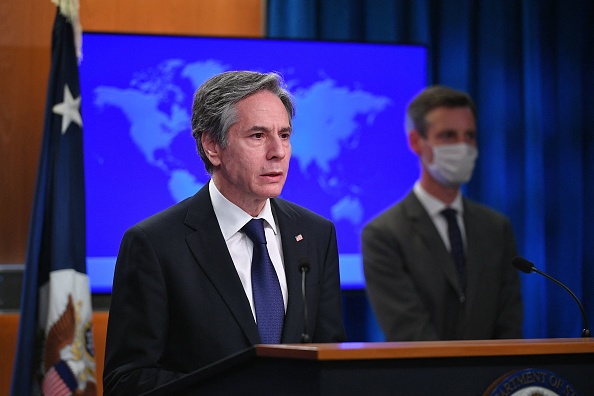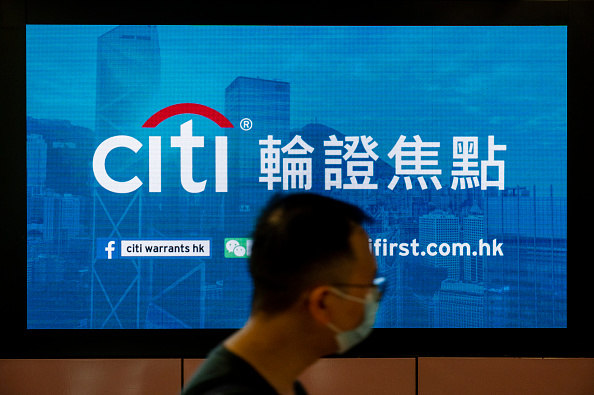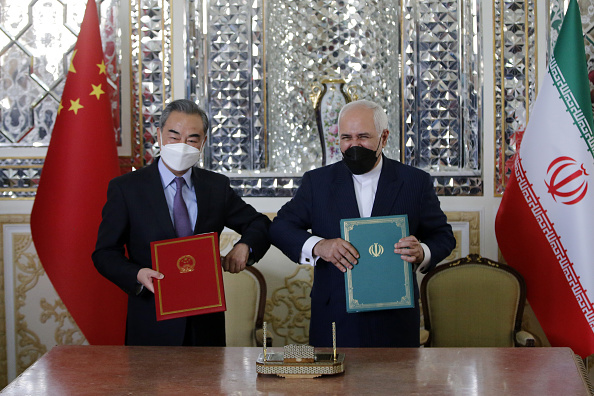
 Back to Basics
Back to BasicsIt may be a new administration, but U.S.-China economic tensions are likely to persist. In the U.S. Trade Representative's annual report, released this week, senior trade official Katherine Tai said that the U.S. wants China to negotiate before it lifts tariffs on $350 billion worth of Chinese goods. Three months in, it appears that the Biden administration shares several of the main concerns that their predecessors held on the trade deficit and IP theft. Until those issues are addressed, U.S. importers and agricultural exporters dependent on Chinese customers will pay the price.
This year's National Trade Estimate Report on Foreign Trade Barriers called China "the world's leading offender in creating non-economic capacity," and criticized the country for setting demand lower for certain goods than what a company can provide, specifically in industries such as steel, aluminum, and solar. Read more in Tai's Trade Challenges, from Zainab Zaheer, Fulbright alumna and international development consultant.
The Biden administration also extended its concerns this week to China's human rights record. The newly released U.S. State Department 2020 human rights report calls China's actions in Xinjiang "genocide and crimes against humanity," marking the first time the Biden administration officially described it in such terms. Chinese Foreign Ministry spokesperson Hua Chunying called the classification "the most preposterous lie of the century," adding that "no State, organization, or individual is qualified and entitled to arbitrarily determine that another country has committed 'genocide.'"
When releasing the report, Secretary of State Antony Blinken said "we're not trying to . . . contain China or keep it down. What we are about is standing up for basic principles, basic rights, and a rules-based international order."
 Financial Walls
Financial WallsInternational businesses expressed concern this week that new restrictions on foreign bank activity in China will limit the number of loans that foreign banks can issue, and force banks to sell off bonds and other investments that many foreign businesses operating in China rely on. Late last year, Beijing issued regulations limiting the amount of money non-Chinese banks could move into China, making China's financial environment increasingly inhospitable to foreign banks. The move falls in line with Xi Jinping's push to make China's economy more self-sufficient.
At the same time, China is also considering a new stock exchange in an effort to lure in overseas-listed firms and bring back mainland companies that have listed on exchanges in Hong Kong and the U.S. While some of the world's biggest tech companies originated in China, few are actually listed there. According to a Reuters report, Beijing also hopes to entice global firms like Apple Inc. and Tesla Inc., by allowing them to start local businesses and list them on the new bourse. The discussions are nascent, but given U.S.-China tensions, and the possibility that Chinese companies may be expelled from U.S. exchanges, a new Chinese exchange is a likely possibility.
 Courting Iran
Courting IranChina and Iran signed a 25-year agreement this Saturday, bringing Iran into China's Belt and Road Initiative. The "Comprehensive Strategic Partnership" will strengthen China and Iran's bilateral economic and political alliance, and increase economic, agricultural and transportation collaboration, including oil and mining activities.
While the U.S. currently has tenuous relationships with both Iran and China, experts are cautiously optimistic that the agreement won't worsen tensions between the three nations. The agreement will increase the amount of Chinese foreign direct investment into Iran, although there is no explicit mention of military collaboration. Since 2015, China has signed similar deals with Iraq, Saudi Arabia, and the UAE, while Iran last signed a major agreement with Russia in 2001, a 10-year cooperation agreement focusing on nuclear activity.
The U.S., meanwhile, is making its own renewed overtures to Iran. Today, the U.S. participated in a virtual meeting with representatives from the current members of the Joint Commission of the Joint Comprehensive Plan of Action (JCPOA)— the European Union, China, France, Germany, Russia, the United Kingdom and Iran— to discuss "the prospect of a possible return," according to an EU statement. The U.S. will hold "indirect talks" with Iran in Vienna next week, alongside the additional signatories to the agreement that aims to curtail Iran's nuclear weapons program through sanctions relief. "These remain early days, and we don't anticipate an immediate breakthrough as there will be difficult discussions ahead. But we believe this is a healthy step forward," said State Department spokesman Ned Price.
China also called for the U.S. to lift all "illegal" sanctions on Iran, saying the country's nuclear issue was at a "critical stage." Foreign Ministry spokesperson Hua Chunying blamed Washington's unilateral exit from the Iran deal as the "root cause" of the problem, while saying China welcomes the return of the U.S.
Prepared by China-US Focus editorial teams in Hong Kong and New York, this weekly newsletter offers you snap shots of latest trends and developments emerging from China every week, while adding a dose of historical perspective.
- 2021-03-26 The Biden Era
- 2021-03-19 “A Strong Smell of Gunpowder and Drama”
- 2021-03-12 Bridging the Divide
- 2021-03-05 A Tale of Two AI Superpowers
- 2021-02-26 Changing of the Guard
- 2021-02-20 Collective Approaches
- 2021-02-13 Hopes for a Bullish Year
- 2021-02-05 “The Most Serious Competitor”
- 2021-01-29 Looking Towards Multilateralism
- 2021-01-22 Biden’s China Path
- 2021-01-16 Becoming a "Technological Superpower"
- 2021-01-08 Capital Chaos
- 2020-12-18 All Eyes on 2021
- 2020-12-12 Midwest to Middle Kingdom?
- 2020-12-04 Shifting Winds
- 2020-11-21 Multilateralism on the Move
- 2020-11-14 Staying Tough
- 2020-11-07 Battleground Ballots
